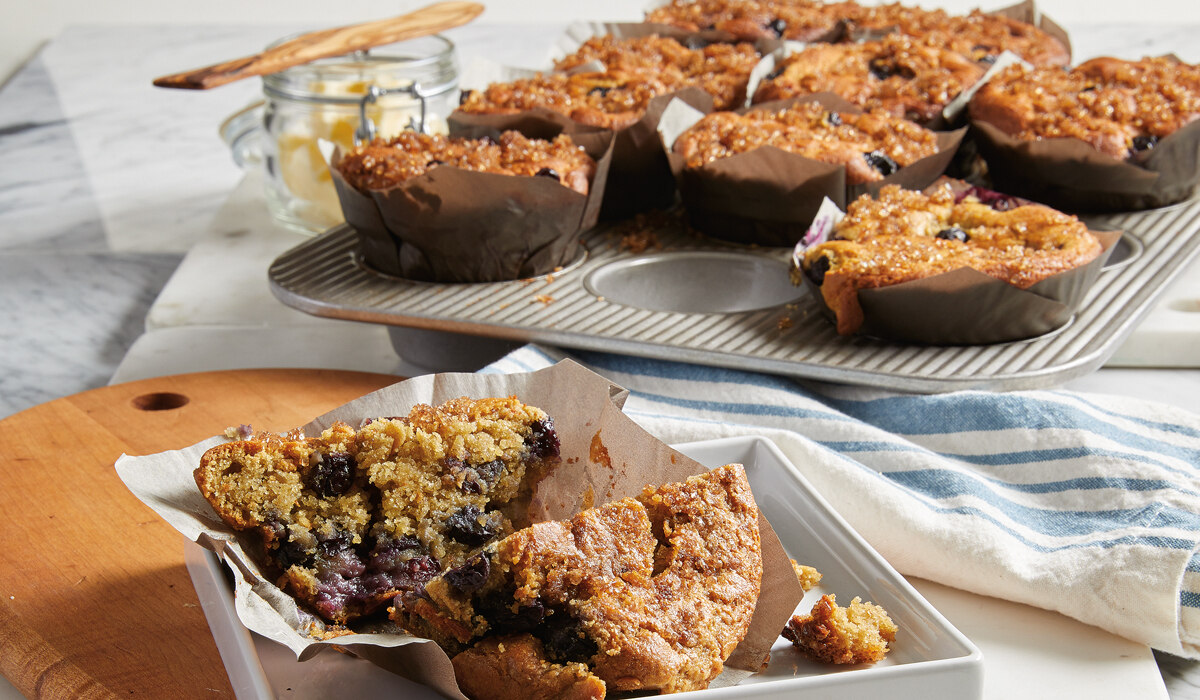
Ever wondered why so many people are going gluten-free? Whether it's due to celiac disease, gluten sensitivity, or just a personal choice, the gluten-free lifestyle has gained massive popularity. But what exactly does it mean to go gluten-free? Gluten is a protein found in wheat, barley, and rye. For some, consuming gluten can lead to serious health issues. For others, it’s about feeling better overall. This blog post will dive into 29 intriguing facts about gluten-free choices, shedding light on everything from health benefits to common misconceptions. Ready to learn more? Let's get started!
Key Takeaways:
- Going gluten-free can benefit those with celiac disease, gluten sensitivity, or wheat allergy. It may improve digestion, increase energy, and help with skin conditions.
- Many naturally gluten-free foods like fruits, vegetables, meat, and fish can be included in a gluten-free diet. There are also plenty of gluten-free alternatives available for bread, pasta, and snacks.
What is Gluten?
Gluten is a protein found in wheat, barley, and rye. It gives dough its elasticity and helps it rise. For some, consuming gluten can cause health issues. Here are some interesting facts about gluten-free choices.
-
Celiac Disease: About 1% of the global population has celiac disease, an autoimmune disorder where gluten damages the small intestine.
-
Gluten Sensitivity: Non-celiac gluten sensitivity affects up to 6% of people. Symptoms are similar to celiac disease but without intestinal damage.
-
Wheat Allergy: Different from celiac disease, a wheat allergy can cause severe allergic reactions, including anaphylaxis.
Gluten-Free Diet Benefits
Switching to a gluten-free diet can offer several health benefits, especially for those with gluten-related disorders.
-
Improved Digestion: Many people report better digestion and fewer gastrointestinal issues after eliminating gluten.
-
Increased Energy: Some individuals experience higher energy levels and reduced fatigue on a gluten-free diet.
-
Clearer Skin: A gluten-free diet may improve skin conditions like eczema and psoriasis.
Gluten-Free Foods
There are plenty of naturally gluten-free foods that can be included in your diet.
-
Fruits and Vegetables: All fresh fruits and vegetables are naturally gluten-free.
-
Meat and Fish: Fresh, unprocessed meat and fish are free from gluten.
-
Dairy Products: Most dairy products, including milk, cheese, and yogurt, are gluten-free.
-
Legumes: Beans, lentils, and chickpeas are excellent gluten-free protein sources.
-
Nuts and Seeds: These are naturally gluten-free and packed with nutrients.
Gluten-Free Grains
Not all grains contain gluten. Here are some safe options.
-
Rice: A staple in many gluten-free diets, rice is versatile and widely available.
-
Quinoa: This superfood is rich in protein and naturally gluten-free.
-
Corn: Corn and cornmeal are safe for those avoiding gluten.
-
Buckwheat: Despite its name, buckwheat is gluten-free and nutritious.
-
Amaranth: An ancient grain, amaranth is a great gluten-free option.
Gluten-Free Alternatives
Many gluten-free alternatives can replace traditional gluten-containing foods.
-
Gluten-Free Bread: Made from rice, almond, or coconut flour, gluten-free bread is widely available.
-
Gluten-Free Pasta: Options include pasta made from rice, quinoa, or chickpeas.
-
Gluten-Free Flour: Almond, coconut, and rice flours are popular gluten-free baking choices.
-
Gluten-Free Snacks: Many brands offer gluten-free chips, crackers, and cookies.
Gluten-Free Labeling
Understanding gluten-free labeling can help make informed choices.
-
Certified Gluten-Free: Products with this label meet strict gluten-free standards.
-
Naturally Gluten-Free: Foods like fruits, vegetables, and meat are naturally free from gluten.
-
Cross-Contamination: Always check labels for potential cross-contamination with gluten.
Gluten-Free Dining Out
Eating out while avoiding gluten can be challenging but manageable.
-
Research Restaurants: Look for restaurants with gluten-free menus or options.
-
Ask Questions: Don't hesitate to ask about ingredients and preparation methods.
-
Avoid Buffets: Cross-contamination is common in buffet settings.
Gluten-Free Myths
Several myths surround gluten-free diets. Here are some clarifications.
-
Weight Loss: A gluten-free diet is not inherently a weight-loss diet. Weight changes depend on overall food choices.
-
Nutritional Deficiency: A well-planned gluten-free diet can be nutritionally complete.
-
Only for Celiac Disease: While essential for celiac disease, a gluten-free diet can benefit others with gluten sensitivity or wheat allergy.
Gluten-Free Choices: A Quick Recap
Gluten-free choices aren't just a trend; they're a necessity for many. From celiac disease to gluten sensitivity, understanding these conditions helps in making informed decisions. Gluten-free diets can improve digestive health, boost energy levels, and even aid in weight management. However, it's crucial to read labels carefully, as gluten can hide in unexpected places like sauces and seasonings.
Exploring naturally gluten-free foods like fruits, vegetables, meat, and dairy ensures a balanced diet. Gluten-free grains such as quinoa, rice, and corn offer variety and nutrition. Remember, gluten-free doesn't mean taste-free. Plenty of delicious recipes and products are available to satisfy your cravings.
Staying informed and vigilant can make living gluten-free easier and more enjoyable. Whether for health reasons or personal choice, embracing gluten-free options can lead to a healthier lifestyle.
Frequently Asked Questions
Was this page helpful?
Our commitment to delivering trustworthy and engaging content is at the heart of what we do. Each fact on our site is contributed by real users like you, bringing a wealth of diverse insights and information. To ensure the highest standards of accuracy and reliability, our dedicated editors meticulously review each submission. This process guarantees that the facts we share are not only fascinating but also credible. Trust in our commitment to quality and authenticity as you explore and learn with us.
